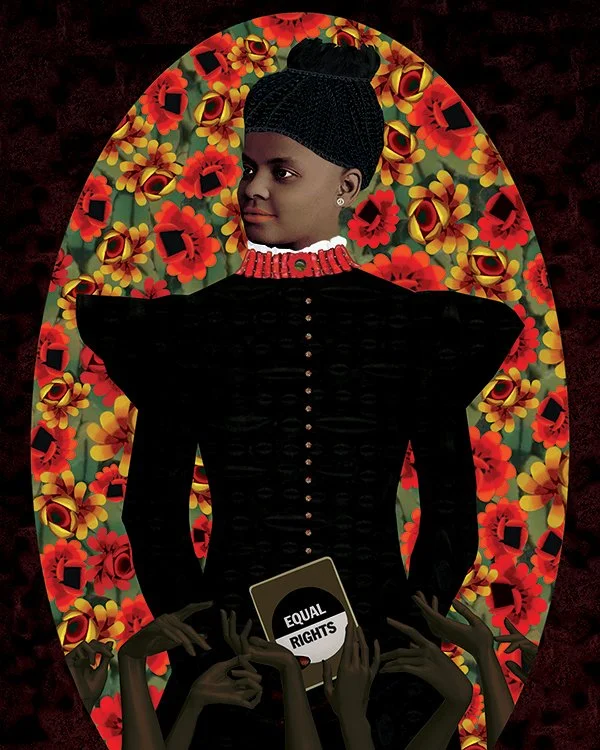I DEMAND JUSTICE
JOURNALIST | SUFFRAGIST | ACTIVIST
Born into slavery, Ida B Wells became a journalist, civil rights activist and female suffrage campaigner. She helped to found several civil rights groups, among them the NAACP. As a journalist Ida risked her life to tackle issues of racial discrimination, prejudice and lynching. As an activist, she fought discrimination and the double standards for blacks and women in American society. As a radical thinker, Ida pioneered the use of boycotts, a precursor to the 1950s and 60s civil rights movement, and employed the now famous tactic to “call them by their names.” She did all this at a time when black women had no political power.
Long before Rosa Parks, Ida experienced American transportation inequality. Even though she had purchased a first-class train ticket, she was commanded to move to third class in the back of the train with other blacks. She refused, bit the conductor, and was promptly thrown off the train. Ida successfully sued the railroad company and won $500 in damages but on an appeal the decision was overturned and she was forced to pay the court costs.
At sixteen Ida’s parents died and she had to support herself and younger siblings by teaching. Although rare at the time, she was able to be educated because her father was a trustee and one of the founders of Shaw college. While teaching, Ida worked as a journalist writing articles on social conditions. When she harshly criticized the inequality of segregated schools, Ida lost her teaching job.
After learning about the lynching of three black men for defending their store from a white gang, Ida began writing articles condemning the common practice. Her investigative journalism used pioneering techniques for gaining sympathy and support from the reader. She called them by their names and personalized the narratives to tell the human story of injustice. Later, she became the first African-American women to be paid by a white mainstream newspaper.
Controversial and radical, Ida would not be silenced even though she was often vilified, even surveilled, for her strong criticism of social injustice. She clashed with the Women’s suffrage movement because it did not include civil rights for blacks, only women, and mostly white. Courageous in her pursuit for justice for every citizen, Ida helped organize African-American workers rights protests, tackled issues around mass incarceration as a probation officer, and exposed the hypocrisy of consensual interracial sex in her journalism.
Ida ran for office in the Illinois Senate but received few votes. Temperate voices eclipsed Ida’s and she collaborated with more moderate civil rights activists like Susan B. Anthony and Frederic Douglas. Now, her progressive form of social activism is being employed by justice and equality advocates. Turns out, she was right all along. Just imagine where we’d be if she had prevailed.


